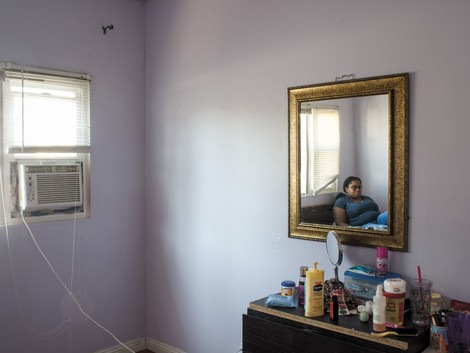Your podcast discovery platform
Curious minds select the most fascinating podcasts from around the world. Discover hand-piqd audio recommendations on your favorite topics.

piqer for: piqd Boom and bust Climate and Environment Global finds Globalization and politics Health and Sanity Technology and society Doing Good Deep Dives
Malia Politzer is the executive editor of piqd.com, and an award-winning long-form journalist based out of Spain. She specializes in reporting on migration, international development, human rights issues and investigative reporting.
Originally from California, she's lived in China, Spain, Mexico and India, and reported from various countries in Africa, Europe and the Middle East. Her primary beats relate to immigration, economics and international development. She has published articles in Huffington Post Highline, The Economist, The Wall Street Journal, Vogue India, Mint, Far Eastern Economic Review, Foreign Policy, Reason Magazine, and the Phoenix New Times. She is also a regular contributor to Devex.
Her Huffington Post Highline series, "The 21st Century Gold Rush" won awards from the National Association of Magazine Editors, Overseas Press Club, and American Society of Newspaper Editors. She's also won multiple awards for feature writing in India and the United States.
Her reporting has been supported by the Pulitzer Center on Crisis Reporting, The Institute For Current World Affairs, and the Global Migration Grant.
Degrees include a BA from Hampshire College and MS from Columbia University Graduate School of Journalism, where was a Stabile Fellow at the Center for Investigative Journalism.
The College Try: Is Higher Education In The US Worth The Work And Debt?
In this moving long read, journalist Ashley Powers follows two young women from poor families in their quest to secure a four-year college degree in California, one of the most expensive states in the country.
While their tuitions might be covered (most are eligible for Pell Grants, state funding allocated to students at the lowest economic bracket), their living expenses — astronomically high in California, often more than $25,000 for rent alone — are not. As a result, students who lack the financial support of their families, or who choose not to take out federal loans, are forced to scrape by: Liz Waite, one of the article’s protagonists, is homeless, sleeping on couches. The other young woman, Kersheral Jessup, attended community college for years while working a series of minimum-wage jobs before transferring to a more expensive four-year program as a junior. While she eventually did graduate, unable to find a job, today she is working the same minimum-wage position at Home Depot she started with.
Being from California myself, it’s an article that strikes a chord: While I took out loans, I empathize with those who do not want to. Averaging $20,000–$40,000, it’s a lot of debt to take on with no guaranteed way to pay it.
The question at the heart of the article, then, is: Is higher education worth it? Is a four-year degree worth the sacrifice, debt, and years of work to achieve it? Does it guarantee the graduate a better future, as we are all assured it will? While the article doesn’t answer the question, the disturbing question mark remains.
